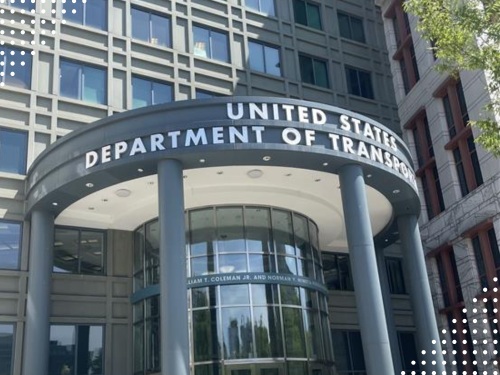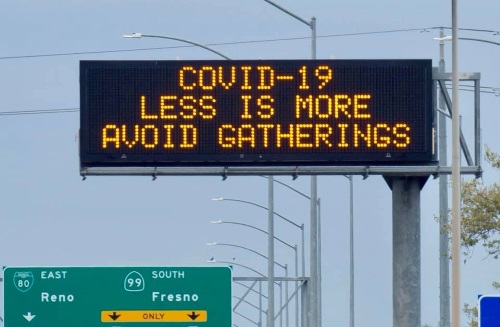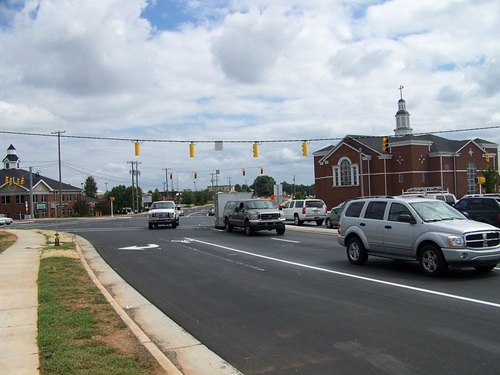Even as transit ridership falls and highway travel declines due to the Coronavirus outbreak, state departments of transportation are making adjustments to toll collection and rest area protocols to help prevent further spread of the disease while at the same time altering construction and maintenance schedules where necessary.
[Above photo by Caltrans.]
For example, the Pennsylvania Turnpike, Florida Department of Transportation, and the Maryland Transportation Authority have all suspended cash and credit card payments for tolls in order to reduce exposure risk for both toll collection personnel and motorists alike.

Toll payments will still be collected, those agencies said, but only via electronic-only means.
States reportedly are keeping rest areas open for parking but in some cases limiting access to those facilities, as well as beefing up sanitization efforts for the rest room facilities at those locations. State rest areas provide vital truck parking spaces – especially as the commercial trucking industry is experiencing anywhere from an 18 percent to 30 percent jump in demand, largely to transport food, medical supplies, plus consumer goods such as hand sanitizer and toilet paper.
State DOTs with public transit system responsibilities are continuing to enhance equipment sanitization efforts while also reducing service due to falling demand.

“As we continue monitoring the situation, we are making adjustments to ensure we can provide service for essential trips in the safest manner possible,” noted Steve Poftak, general manager of the Massachusetts Bay Transportation Authority – a division of the Massachusetts Department of Transportation – in a statement.
“We recognize that some employees in key industries, including those in the medical community, rely on the MBTA to get to their places of work and we’re committed to providing service to those folks who rely on [us],” he explained. “That said, service continues to operate at reduced levels in an effort to maintain a responsible balance between protecting our workforce and operating safe service.”
After making changes to its commuter rail operations to combat the virus on March 12, the Connecticut Department of Transportation began making alterations to its bus operations on March 19 – moving to rear-door boarding for all passengers (except in certain cases) and equipping 100 CT transit buses with transparent protective partitions between drivers and passengers.

The agency said it would redeploy those 100 buses on its busiest routes in order to provide the greatest level of protection for drivers as it reviews options to expedite delivery and installation of barriers on additional buses.
“The health and well-being of all of our passengers and employees is our number one priority and we will continue to monitor and stay on top of the situation as it changes,” noted Joseph Giulietti, the Connecticut DOT commissioner, in a statement.
State DOTs are also altering construction and maintenance schedules where infrastructure is concerned – though the degree of change differs widely between agencies.

For example, on March 16 the Pennsylvania Department of Transportation temporarily suspended all construction work on transportation projects, while noting its crews “could perform critical functions and emergency maintenance” on an as-needed basis.
By contrast, the Alabama Department of Transportation said active construction and road maintenance projects and supporting functions “will continue,” including scheduled bid openings for new projects. However, the agency added that all public involvement meetings are postponed “until further notice.”
Yet even as state DOTs struggle to adjust their operations in the face of the Coronavirus pandemic, Jim Tymon, executive director of the American Association of State Highway and Transportation Officials, said in a recent letter that they “stand ready to provide every assistance possible to federal and local partners” during this “unprecedented emergency” to support the nation’s residents and businesses.
 Top Stories
Top Stories


